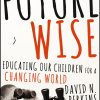Making Sense of Mass Education 3rd edition by Gordon Tait 9781108445795 1108445799
$70.00 Original price was: $70.00.$35.00Current price is: $35.00.
Instant download Making Sense of Mass Education Gordon Tait after payment
Making Sense of Mass Education 3rd edition by Gordon Tait – Ebook PDF Instant Download/Delivery:9781108445795,1108445799
Full dowload Making Sense of Mass Education 3rd edition after payment

Product details:
ISBN 10:1108445799
ISBN 13:9781108445795
Author:Gordon Tait
Making Sense of Mass Education provides an engaging and accessible analysis of traditional issues associated with mass education. The book challenges preconceptions about social class, gender and ethnicity discrimination; highlights the interplay between technology, media, popular culture and schooling; and inspects the relevance of ethics and philosophy in the modern classroom. The third edition has been comprehensively updated to include the latest research, statistics and legal policies. Each chapter challenges and breaks down common myths surrounding each topic, encouraging pre-service teachers to think critically and reflect on their own beliefs. The inclusion of a new chapter on alternative education reflects the ever-changing Australian educational landscape. In Making Sense of Mass Education, Gordon Tait expertly blurs disciplinary boundaries, drawing on sociology, cultural studies, history, philosophy, ethics and jurisprudence to provide a comprehensive understanding of the fundamental concepts of mass education.
Making Sense of Mass Education 3rd Table of contents:
Part 1 Re-assessing the three pillars: Modern and postmodern sociologies of education
Chapter 1 Social class
Introduction
Myth #1 Australia is a society characterised by equality
Myth #2 Schooling success is only about individual ability
Myth #3 Social class is all about money
Conclusion
Chapter 2 Gender
Introduction
Myth #1 Sex and gender are really the same thing
Myth #2 Schools are passive spectators to existing gender differences and inequalities
Myth #3 Boys are the latest victims of the schooling system
Myth #4 Sexuality is simply best ignored at school
Conclusion
Chapter 3 Race/ethnicity
Introduction
Myth #1 Humanity is naturally divided into races
Myth #2 We no longer discriminate on the basis of race or ethnicity
Myth #3 Educational outcomes are unaffected by race or ethnicity
Myth #4 There is an ‘Indigenous problem’ in education
Conclusion
Part 2 The foundations of an alternative approach: Education and governance
Chapter 4 Governance
Introduction
Myth #1 Society has always been simply a collection of individuals
Myth #2 Schools are primarily about education, not regulation
Myth #3 The structure of the school isn’t really that important to the education process
Conclusion
Chapter 5 Subjectivity
Introduction
Myth #1 The sole purpose of psychology is to understand the nature of the human mind
Myth #2 My conduct may be governed, but my mind remains free
Myth #3 Psychology simply discovers new behaviour disorders; it plays no role in creating them
Conclusion
Chapter 6 Pre-adulthood
Introduction
Myth #1 ‘Childhood’ and ‘youth’ are facts of nature
Myth #2 The categories of ‘childhood’ and ‘youth’ have nothing to do with governance
Myth #3 ‘Childhood’ is characterised by its innocence, ‘youth’ by its natural resistance to
Conclusion
Chapter 7 Big data
Introduction
Myth #1 Big data isn’t that big, or that important
Myth #2 The rise of big data has no implications for the field of education
Myth #3 NAPLAN is the best thing to happen to education since the invention of chalk
Conclusion
Part 3 Cultural contexts of contemporary education
Chapter 8 The media
Introduction
Myth #1 We do not need pointless subjects like ‘media studies’ in our already crowded curriculum
Myth #2 With the news media, you don’t need to think, you just need to read and listen
Myth #3 The media doesn’t create moral panics, but even if it does, this doesn’t affect educatio
Conclusion
Chapter 9 Popular culture
Introduction
Myth #1 Popular culture is rubbish – in terms of taste, it’s awful; as an object of study, it’
Myth #2 Teachers need to be up to date with student cultures
Myth #3 Popular culture has no place in the classroom
Conclusion
Chapter 10 Technology
Introduction
Myth #1 ‘Technologies’ aren’t that important; they don’t affect the fundamentals of what it
Myth #2 Digital technology is the answer to all our education problems
Myth #3 Technology signals the end of teaching
Conclusion
Chapter 11 Globalisation
Introduction
Myth #1 Understanding globalisation is easy; it’s simply another word for Americanisation
Myth #2 We have an Australian education system here, not any kind of ‘globalised’ one
Myth #3 ‘Education for Sustainability’ has nothing to do with globalisation; it’s a politicall
Conclusion
Part 4 Philosophy and mass education
Chapter 12 Philosophy
Introduction
Myth #1 Philosophy has no place in the 21st-century curriculum
Myth #2 ‘Education’ is self-evident; we don’t need philosophy to explain it
Myth #3 Teachers don’t need a ‘personal philosophy of education’
Conclusion
Chapter 13 Ethics and the law
Introduction
Myth #1 Understanding ethics doesn’t help you be a good teacher
Myth #2 Unlike ethics, the law is straightforward; everyone agrees what it is, and what it does
Myth #3 We have an ethical education system; it does not discriminate
Myth #4 There are no real ethical dilemmas left for education law to deal with
Conclusion
Chapter 14 Truth and postcolonialism
Introduction
Myth #1 ‘Truth’ is the most straightforward thing there is
Myth #2 Given we haven’t been a colony for 100 years, postcolonial theory has nothing to tell us a
Myth #3 The knowledge in our school curriculum is both true, and culturally neutral
Conclusion
Chapter 15 Alternative education
Introduction
Myth #1 There are no serious alternatives to traditional mass education
Myth #2 If you do choose to stay within the current schooling system, there are no realistic ways to
Conclusion
Conclusion: The central aims of this book
The intended approach of this book
Finally
People also search for Making Sense of Mass Education 3rd:
making sense of mass education pdf
making sense of mass education 2023
making sense of mass education 4th edition
making sense of mathematics for teaching grades 6-8
define mass education


